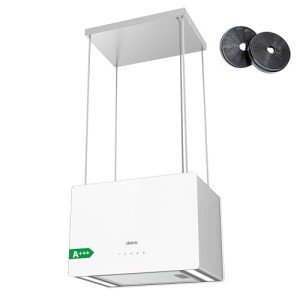12 Companies Are Leading The Way In Island Extractors
페이지 정보
본문
Island Extractors: A Comprehensive Guide to a Unique Industry
In the realm of extraction markets, few sectors capture the imagination as strongly as that of island kitchen extractor hoods extractors. These specialized entities focus on the extraction of valuable resources, both renewable and non-renewable, 48 island Range Hood from island cooker communities. This article delves into the complex world of island extractors, discussing their operations, environmental impacts, and the future of this niche industry.
Understanding Island Extraction
Island extractors are business or people that take part in the extraction of natural deposits found on islands. This extraction can consist of a variety of products, such as minerals, nonrenewable fuel sources, and even marine resources. Offered the distinct environments discovered on islands, the extraction process can present both opportunities and inherent obstacles.
Classifications of Island Extraction
48 island cooker hoods range hood (mozillabd.Science) extraction can typically be categorized into numerous categories:
| Category | Description | Examples |
|---|---|---|
| Mineral Extraction | The removal of minerals from the earth | Kaolin, Bauxite, Iron Ore |
| Fossil Fuel Extraction | Extraction of fuels formed from raw material over millennia | Oil, Natural Gas |
| Marine Resource Extraction | Gathering resources from oceanic environments | Fish, Seaweed, Shellfish |
| Renewable Resource Extraction | Extraction of sustainable resources | Lumber, Freshwater |
The Process of Island Extraction
The extraction procedure itself can vary considerably based on the resource in question. The procedures for drawing out oil diametrically vary from those for harvesting seafood.

Steps in the Extraction Process
- Exploration: This stage involves geological studies and initial studies to examine the potential of the resource.
- Regulations Compliance: Compliance with regional and worldwide ecological laws is crucial to ensure sustainable practices.
- Extraction: This consists of drilling for oil or mining for minerals, and can trigger considerable interruption to local ecosystems if not handled correctly.
- Transportation: Extracted resources normally require transport back to the mainland or other markets, often involving the use of ships and barges.
- Post-Extraction Restoration: Efforts to bring back the environment post-extraction are vital to alleviate long-lasting impacts.
Environmental Impact of Island Extraction
Given the fragile nature of island ecosystems, the ecological effect of extraction activities can be significant.
Secret Environmental Concerns
- Habitat Destruction: The physical elimination of landscapes can ravage regional plants and animals.
- Contamination: Resource extraction can introduce toxins, leading to ocean acidification, water contamination, and air quality degradation.
- Coastal Erosion: Activities can intensify coastal disintegration, changing the natural landscape and impacting local communities.
- Biodiversity Loss: Extractors frequently interfere with regional communities, putting native types at danger.
Mitigation Measures
To neutralize these effects, island extractors are significantly adopting sustainable practices that include:
- Implementing stricter ecological policies
- Using innovation for safer extraction processes
- Conducting extensive environmental impact evaluations (EIA)
- Engaging with regional communities throughout preparation and operation stages
The Future of Island Extraction
As global demand continues to rise for natural deposits, the future of island vent hood extractors appears appealing yet complex. Numerous elements will form the trajectory of this market in coming years:

- Technological Advancements: Innovations in extraction technology might lead to more efficient and less environmentally disruptive techniques.
- Regulatory Changes: As environment modification becomes an ever-pressing problem, stricter regulations may redefine extraction practices, prioritizing sustainability.
- Pressure from Environmental Groups: Increased advocacy for the security of biodiversity and ecosystems can affect operational protocols.
- Shift towards Renewable Resources: A growing emphasis on renewable resource options may change the focus from non-renewable extraction to sustainable practices.
Regularly Asked Questions
What resources are commonly drawn out from islands?
Common resources drawn out from islands consist of minerals, nonrenewable fuel sources, lumber, freshwater, and marine resources such as fish and seaweed.
How do island extractors make sure sustainability?
Island extractors can guarantee sustainability by adhering to environmental guidelines, integrating innovation that reduces impact, and bring back environments post-extraction.
What are the significant difficulties faced by island extractors?
Obstacles include compliance with regulations, handling ecological impacts, logistical problems associated with transportation, and engaging with local communities impacted by extraction.
Exist any noteworthy island extraction jobs?
Yes, numerous projects exist worldwide, including mineral mining in the Caribbean, oil drilling in the North Sea, and sustainable fish farming initiatives in Southeast Asia.
The world of island extractors is a complicated interplay in between economic chance and ecological duty. As this market progresses, the difficulty will be to balance resource extraction with the requirement to protect fragile island environments. By accepting sustainable practices and engaging with regional neighborhoods, island extractors can forge a path that appreciates both nature and market, making sure that these special environments are preserved for generations to come.

